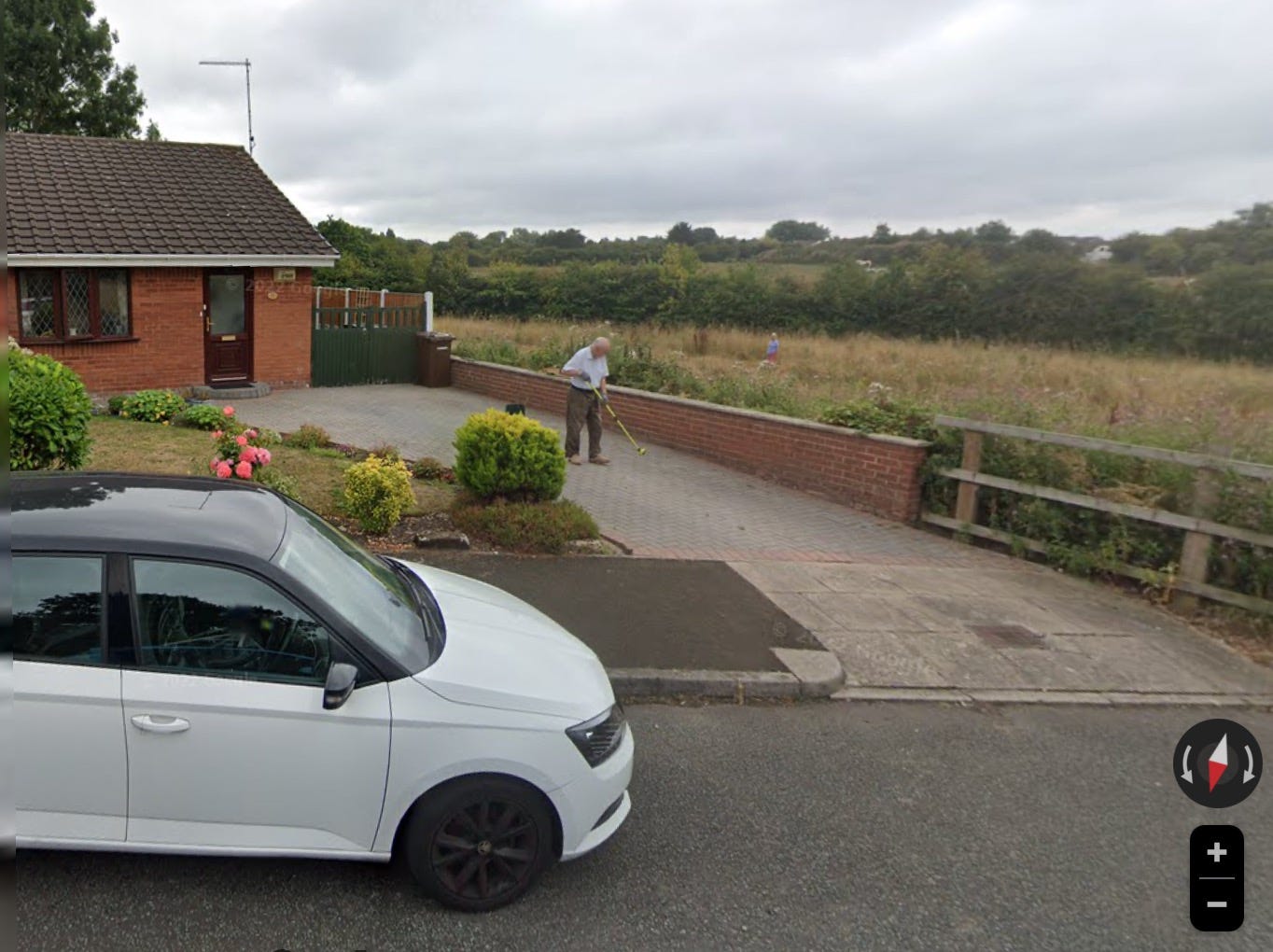22/30: on houses and homes, and how to preserve your memories of a place when you can no longer return there
Further adventures in time travel via Google street view and trying to prepare myself for losing my childhood home
Building on my last post, I’ve been thinking a lot about the houses we live in. How they become a home - our home - for a year or a decade or a lifetime, and how they outlast us. They will eventually pass out of our keeping and go on to become a home for someone else.
Recently, I’ve been trying to put flesh on the bones of my family history research by trying to track down the houses that my Liverpool ancestors lived in. I take the addresses listed in the census returns, electoral registers and certificates of birth, marriage or death, and see if I can find them on a map. Sometimes the houses or even the streets no longer exist, disappeared beneath a multi-storey car park or a supermarket. Others are still standing, and I can use Google street view to walk down the road my grandfather lived on, stand outside his childhood home.
Last week I used street view to visit the bungalow on the Wirral my nana moved to in the late 1980s and lived in until her death in 2009. Standing outside it as it was on a sunny day in summer 2022, I surprised myself by the tears that welled up in my eyes. I had been in that house, played in that garden. I knew the layout of the rooms, could see the objects on Nana’s dressing table and on the living room shelves. I knew where the dirt path that started at the end of the road and headed out across a field of tall grasses led to. It’s been more than a decade since I was last physically there, but seeing the outside of the house through my computer screen brought up a flood of memories.
My mum and her sisters sold the bungalow after Nana’s death. It’s someone else’s home now, may have been several someones’ home since 2009. I can see the current owner on street view, sweeping their drive on a summer’s day. Seeing a house I know so well but being unable to enter it (both because I’m viewing it through a screen and because Nana no longer lives there) brings the passage of time into sharp focus. The gulf between now and the past where Nana was alive. As the famous quote from the novel The Go-Between says, ‘the past is a foreign country’: one that’s always slightly out of reach.
Other houses I’ve visited as a digital ghost pack less of an emotional punch. I only have vague memories of Mum’s childhood home so it was fascinating rather than upsetting to stand outside it on street view. It’s the same with the houses Nana lived in as a child and a young wife. I have no direct connection to them, no memories of my own and virtually no family stories about them, beyond those I’ve been able to piece together through genealogical research. In some cases, the houses and streets my ancestors lived in and on no longer exist. I wonder if they were destroyed by bombs during WW2 or demolished in the name of progress in the 1960s or 1970s, long after the time my family members had lived there.
I’m lucky that in my early 40s I am still able to visit and inhabit my childhood home. My dad still lives there and, barring any need to move to a care home, it’s safe to say that he will remain there until his death. He’s in his mid 70s now, and not in the best of health, so with my pragmatic eldest daughter hat on, I know that we need to accept that this might come sooner rather than later. Realistically within the next ten years.
Visiting my childhood home, which has already become a slightly fraught mixture of comforting and painful since my mum died in 2015, is starting to take on an extra layer of meaning. When I’m there, a cold analytical part of me is looking around at all the furniture and books and objects that make that house our home, and reminding myself that one day soon my brother and I will be clearing the house out, deciding what to do with everything. What to keep and what to give away. Everything I can see in that house feels like a painful decision waiting to be made. I want to keep everything - my brother wants to keep the house - but I know that it’s not going to be possible to do so.
I’m trying to prepare myself for the eventual loss of that physical connection to my childhood, to my memories of our family life there. Ultimately, that physical connection to my family. I don’t know what it will feel like to no longer be able to be in that house, to be reduced to a digital ghost standing outside it on Google street view on a day in 2010 when Mum was still alive. I don’t how I will keep those childhood memories alive once the house is gone, when we’ve lost that physical connection to the space and the place they took place in, when all we have to hang the memories on are photographs.
873 words





